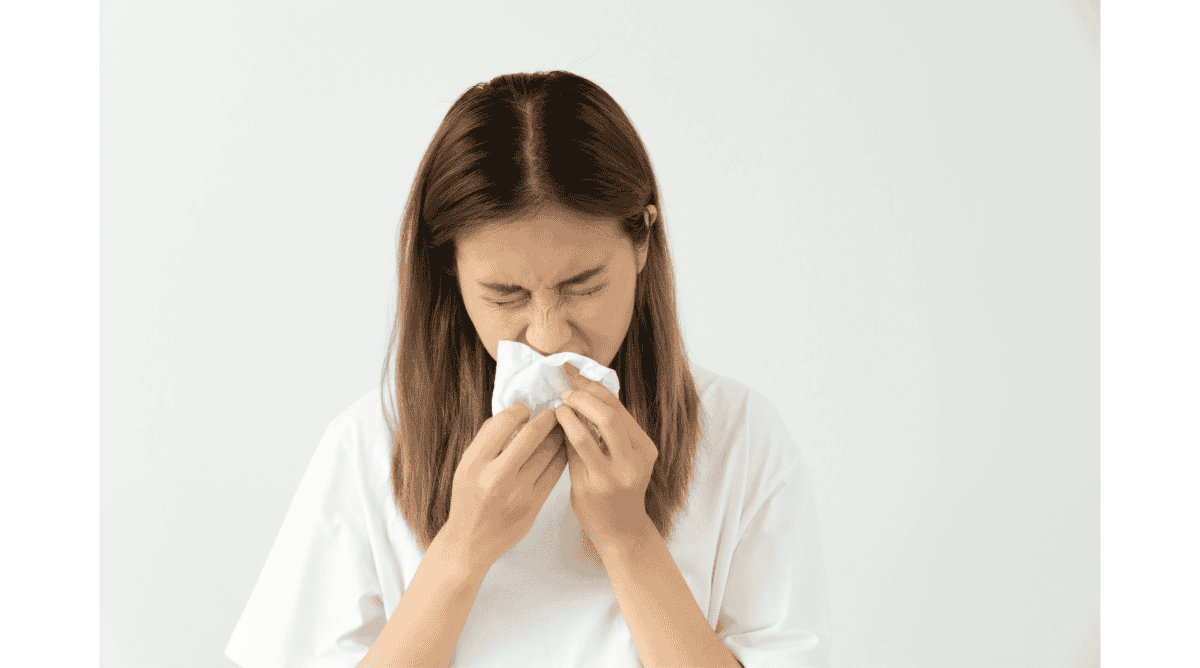- Are Cochlear Implants Worth It? - June 6, 2025
- Tips for Using Hearing Aids in Different Environments - May 27, 2025
- Rechargeable Hearing Aids vs. Battery-operated Hearing Aids - May 16, 2025
Spring is a time of brighter days and warmer temperatures, but for some, it also marks the onset of seasonal allergies. While allergies are most commonly associated with sneezing, runny nose, and itchy eyes, they can also impact hearing health.
The Impact of Allergies on Hearing Health
Allergies can impact hearing health in several ways. For example, allergies can cause inflammation and blockage of the Eustachian tubes, which connect the middle ear to the back of the throat. This can cause feelings of pressure or fullness in the ear and may interfere with hearing.
Tinnitus, or ringing in the ears, can also be a symptom of allergies. This can occur due to the increased pressure in the middle ear or as a side effect of allergy medications.
Allergies may also cause vertigo, a feeling of dizziness or spinning. Vertigo can be caused by inflammation or blockage of the inner ear and can impact balance and coordination.
Common Allergy Symptoms that Affect the Ears
Some common allergy symptoms related to the ears include:
- Itching and Irritation: Allergies can cause itching and irritation in and around the ears. This can be particularly problematic for individuals who wear hearing aids, as the irritation can cause discomfort or interfere with the hearing aid’s effectiveness.
- Dizziness: As mentioned earlier, allergies can cause vertigo or dizziness. If you experience frequent dizziness, it can impact your daily activities and increase the risk of falls.
- Fluid Buildup: Allergies can cause fluid buildup in the middle ear, which can cause temporary hearing loss and discomfort.
Tips for Managing Allergies while Protecting Your Hearing
The best way to manage your allergies is to start early before symptoms become too severe. Speak to your doctor about allergy medications or other treatment options that may be suitable for you. If you suffer from itching or irritation around the ears, avoid scratching or inserting foreign objects into your ear canal. Remove your hearing aids at night and ensure they are clean and dry before reinserting them in the morning.
Other tips include:
- Wearing Protective Gear: If you love to spend time outdoors gardening or doing yard work, consider wearing protective gear, such as a hat and sunglasses, to shield your face and ears from allergens. This can help reduce direct exposure to pollen and other irritants.
- Using Nasal Rinses or Saline Sprays: Nasal rinses or saline sprays can help flush out allergens from your nasal passages, reducing congestion and alleviating allergy symptoms. Consult with your healthcare provider for proper instructions on using these products.
- Drinking Plenty of Water: Proper hydration can help thin out mucus and relieve congestion. Avoid alcohol and caffeine, as they can have a dehydrating effect.
- Maintaining a Clean Home: You can also keep your home clean and well-ventilated to minimize exposure to allergens such as dust, pollen, and pet dander. Use a vacuum cleaner with a HEPA filter and wash your bedding regularly.
- Monitoring Pollen Count: Stay informed about the pollen count in your area. Many weather websites and smartphone apps provide daily pollen forecasts, allowing you to plan outdoor activities during times when pollen levels are lower.
- Consider Allergy Shots or Immunotherapy: If your seasonal allergies are severe and significantly impact your hearing health, you may consider allergy shots or immunotherapy. These treatments involve receiving regular injections of small amounts of allergens to gradually build immunity, reducing your allergic reactions over time.
When to Seek Professional Help
If you experience springtime allergies, these are the signs it’s time to seek help:
- Persistent Symptoms: If your allergy symptoms persist, seem to worsen, or interfere with your daily activities, seek medical attention.
- Unusual Symptoms: If you experience unusual symptoms such as pain, bleeding, or discharge from the ears, seek medical attention immediately.
- Hearing Loss: If your allergy symptoms cause significant hearing loss, seek professional help from a hearing healthcare professional.
Managing seasonal allergies is important for both your respiratory and hearing health. Follow these tips to reduce the impact of allergies and boost your overall health and well-being. If you have allergies that impact your hearing, visit us today for ongoing support. It’s important to consult with healthcare professionals for personalized advice and treatment options during allergy season.

